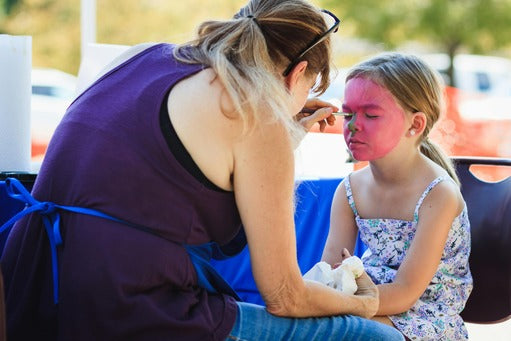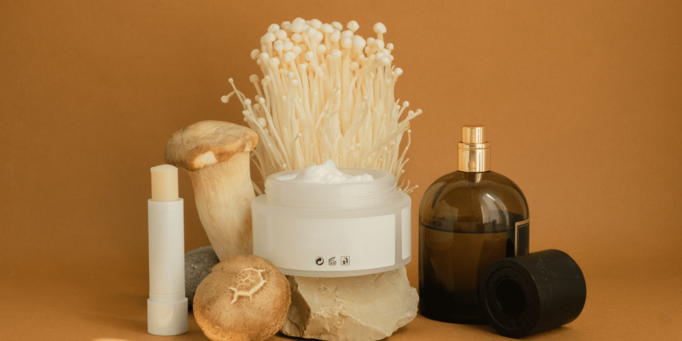Why Pretend Play is as Important as Learning

"It is a happy talent to know how to play" – Ralph Waldo Emerson
Children do know how to play. They are masters at it, and as a parent, you should encourage and support them in their pretend play activities. Now, what is pretend play?
They can be police officers, make-up artists, princesses, warriors, chefs, or all of these at once. While their imaginative play might seem a trifle to you, you should know that in their pretend play make-believe process, children learn how to solve problems, cooperate, and use their creative thinking. They discover themselves and the world around them, while dealing with their fears and insecurities as they play.
Pretend play is part of the more complex children's developmental psychology. Studies have illustrated remarkable cognitive benefits of pretend play, especially in the area of language development.
What is Pretend Play in Child Development?
Pretend play in child development is where children use their imaginative powers to create scenarios, role-play and act-out various situations. Now, why is pretend play in child development important? The make-believe play in early childhood allows for the expression of positive and negative feelings and the ability to merge emotion and cognition.
Research has even associated early imaginative play with increased creative performance later in life. (Russ, S.W., & Fiorelli, J.A. 2010)
Studies have also shown that parents should discuss early concepts of beauty, nature, friendship with their children. Telling bedtime stories fosters creativity and pretend play.
Probably, we should rid ourselves of the idea that play is the opposite of learning. Instead, we must consider joining our children and encouraging them to explore the limitless amount of ideas, emotions and perspectives at their disposal.
There is great power in play. Let's examine its many benefits and advantages.
The Benefits of Imaginative Play
Imaginative play benefits go beyond what you can think of. It fosters child’s development and also build essential skills that contribute to their cognitive, emotional, and social growth. Let’s find the importance of pretend play in child development in more detail –
Pretend Play Enables Kids to Reflect Upon Themselves and the World
When children first get together with other children and decide they want to be Darth Vader, Spiderman or Princess Elsa, they express their first preferences and interests. Through imaginative play, children take up roles for the first time. Moreover, they instinctively learn that each one of us plays a role in their life. So, kids pretend play with their friends, siblings, parents or stuffed animals, dolls. In the dynamics of pretend play, they learn about themselves and experiment with different social roles.
Imaginative play helps children Deal with their Fears
Sometimes, children might use pretend play to figure out personally challenging or demanding events. It's their way of coping with a family issue, the absence of a parent, maybe divorce etc.
So, pretend play has a lot of meaning for the little kids at the beginning of their path.
Many times, children play doctors. Or maybe they take care of other children who got "hurt". There is symbolism in this type of imaginative play. It is their way of touching on demanding life experiences they see around.
Children develop complex social thinking skills through play
Children do become more social through pretend play. In a pretend play game, they would negotiate or contemplate others' points of view.
Moreover, they would have to transfer knowledge from one game to another, express their feelings and listen to others' ideas and thoughts. Pretend play is also about delayed gratification.
This ability to wait for a future better reward rather than enjoy a small, immediate one is associated with various positive outcomes in teenagehood and adult life. They include better stress coping mechanisms, social responsibility and a positive relationship with the people around. Children who can delay gratification can grow up to have greater academic skills, even a healthier weight.
Conflict Resolution, Problem-Solving and Cooperation
The importance of pretend play in child development is immense in conflict resolution and problem-solving. Pretend play can lead to circumstances where children don't get what they want. For example, there can be only one king of the castle. Maybe your child won't get this role, as the other children decide to bestow it on another one of their peers.
So, through imaginative play, children learn how to make their frustrations go away and find a resolution to their conflicts. Problem-solving thinking comes into play, and they might decide it's better to take turns. One of them can be king of the castle for 5 minutes. Then someone else takes his place.
Pretend play is the first stepping stone towards emotional intelligence. How we interact with others and learn to read the social cues is key to lifelong happiness.
Pretend Play Helps People Combine Different Types of Skills and Knowledge
Encourage your child to learn and develop through play. Use stories. You can start by recreating one of their favourite stories.
Maybe your children have dozens of dolls and toys, and they get bored of them, go spend their time on an iPad. How about you encourage them to make new toys together. There are countless Youtube tutorials about making cute little action figures from paper. Try this activity together, and while you're at it, imagine a story for your characters. Your children will be drawn into a world of thorough detail that poses a lot of challenges to their hand-to-eye coordination and fine motor skills.
By imagining stories with the newly-created figures, children will develop their emotional intelligence. They will ascribe feelings and emotions to their characters, give them names and imagine a whole character from scratch.
Build some "prop boxes" together. Add old items from around the house that could become toys and props for your next make-believe play session.
So, are you prepared to follow your kid in the wondrous world of fantasy? Try these 5 pretend play ideas at home.
It is also about Creativity and Physical Development
Let's not forget about creativity. Sometimes, people invent the play scenarios themselves. They imagine situations that are impossible in real life, or they can think up scenarios that are not yet possible for them, like being a medic or a policeman.
The multitude of fantasy worlds your children can create is also mind-blowing. Do not belittle their creative "fireworks". Encourage them, join them in their play. You can help by borrowing them a few "props" for more engaging make-believe pretend play.
Some General Tips about Creative Play
Encourage your child to learn and develop through play. Use stories.
You can start by recreating one of their favourite stories. During play, test your children's memory and ask what happens next. Or inquire them about their character's feelings.
Storytelling is also a fundamental part of pretend play, and you should use it more.
Maybe your children have dozens of dolls and toys, and they get bored of them, go spend their time on an iPad. How about you encourage them to make new toys together. There are countless Youtube tutorials about making cute little action figures from paper. Try this activity together, and while you're at it, imagine a story for your characters. Your children will be drawn into a world of thorough detail that poses a lot of challenges to their hand-to-eye coordination and fine motor skills.
By imagining stories with the newly-created figures, children will develop their emotional intelligence. They will ascribe feelings and emotions to their characters, give them names and imagine a whole character from scratch.
Build some "prop boxes" together. Add old items from around the house that could become toys and props for your next make-believe play session. It's like having your own theatre props place where you can go to prepare your next creative experience.
So, are you prepared to follow your kid in the wondrous world of fantasy? Try these 7 pretend play ideas at home.
5 Pretend Play Ideas that Will Bring you Lots of Giggles and Fun
1. Write and Direct Movies
Together Challenge your children to write their own movie scripts and promise to help them play them out. Film it, edit it and watch it together afterwards. There are plenty of easy-to-use apps for video animations and stop-motions. It doesn't have to be Oscar-worthy, as long as it is fun.
2. Play Dress Up
Encourage your children to express their imagination and fashion sense through dress up games. Organise a tea party, and get ready for it.
Get your nails done with non-toxic peel-off nail polish, put your favourite lip balm on and dress for the party. Parents should join the children in fun. Studies show that this can influence the kids' happiness later in life.
3. Build a Fort or a Tent
Creating a fort is a universal activity all children love doing. Maybe they just don't know it yet. Help your children pretend they guard their castle against invaders, hiding their toy friends from enemy spies. Forts can be built with a card box, some pillows, and comfy blankets. Have lunch inside the fort, and tell stories at night under the lantern. Maybe this way you could convince them to eat their vegetables.
4. Indoor Olympics
Are you stuck indoors? Get a little exercise and involve your children as well for a session of indoor Olympics. You can line up some toys, make some running lines. Or you can create your own kind of Olympics sports. How about the sport of "who can put the most clothes on?" or "who can carry an egg in a spoon from one room to the other"? You'll get some physical activities in, and instil a sense of competition in your children. Create medals and rewards. Those will motivate them even more.
5. Kitchen Cooking
It could get messy, but you could have some fun time talking about nutrition and different kinds of foods. Teach your kids about healthy foods and their benefits. You could try some pretend play cooking or even some authentic cooking in the kitchen. Have them help you with simple tasks and keep them energised and motivated with little healthy tricks.
FAQs
1. What age does pretend play start?
Pretend play typically begins around 18–24 months, when toddlers start using objects symbolically and acting out simple scenarios. It continues to develop and become more complex as children grow.
2. What is the difference between role play and pretend play?
Pretend play involves using imagination to create scenarios, while role play is a specific form of pretend play where children take on defined roles, such as playing a doctor or parent, to act out real-life situations.
3. What is the difference between imaginative play and pretend play?
Imaginative play is a broader term that includes any form of creativity and fantasy, while pretend play specifically involves acting out scenarios or using objects symbolically to represent something else.
4. How can parents encourage pretend play at home?
Parents can encourage pretend play by providing open-ended toys like dolls, costumes, or building blocks and creating a playful environment. Joining in the play and allowing kids to lead the scenario can also spark creativity.
5. What if my child doesn’t seem interested in pretend play?
If your child isn’t interested in pretend play, don’t worry. Every child has different preferences. You can gently introduce pretend play through storytelling, props, or by involving their interests, but let them explore at their own pace.
Popular posts
Comprehensive Guide To Do Kids Mermaid Makeup
The Mermaid is a classic and iconic fantasy character. Almost universally recognised by children, the character itself continues to captivate them via its various film and television appearances! Considering the sheer popularity of this fantasy character, it’s no surprise that you are searching for ideas on mermaid makeup for little girls! The mermaid is quite an adaptable look, allowing your child to look like one for Halloween or just casually too!
Easter Gift Guide: Thoughtful Presents for Kids
Kids love gifts. The joy of receiving something new is especially enhanced when the gift is something thoughtful. Think about it—don't you like receiving a thoughtful present too?
The Effects of Wearing Makeup at a Young Age: What Parents Should Know?
As a parent, your affinity for makeup is sure to get picked up by your kids. Sounds great right? Think again! There are certain effects of wearing makeup at a young age that you must be aware of. It’s not all sunshine and roses. As a responsible parent, you must be vigilant of your child and their adventures with makeup. Here’s a deep dive into the world of makeup, specifically from the perspective of our young ones.
Why is Skin Care Necessary for Kids? Essential Products for Healthy Skin!
Did you know? The skin is our largest organ! It serves as a protective barrier, shielding all our internal organs, muscles, and bones from environmental irritants, germs, and much more. This, consequently, also puts the skin under so much pressure and stress. It’s constantly defending against irritants, thus resulting in poor skin health without necessary care...





